Brandi’s Stage 1B Ewing Sarcoma Story
Brandi shares her stage 1B Ewing soft tissue sarcoma story and undergoing treatment, including chemotherapy, surgery, and recovering through physical therapy.
In her story, Brandi also highlights learning how to be in her “new body,” the importance of being a self-advocate, and transitioning to survivorship. Thank you for sharing your story, Brandi!
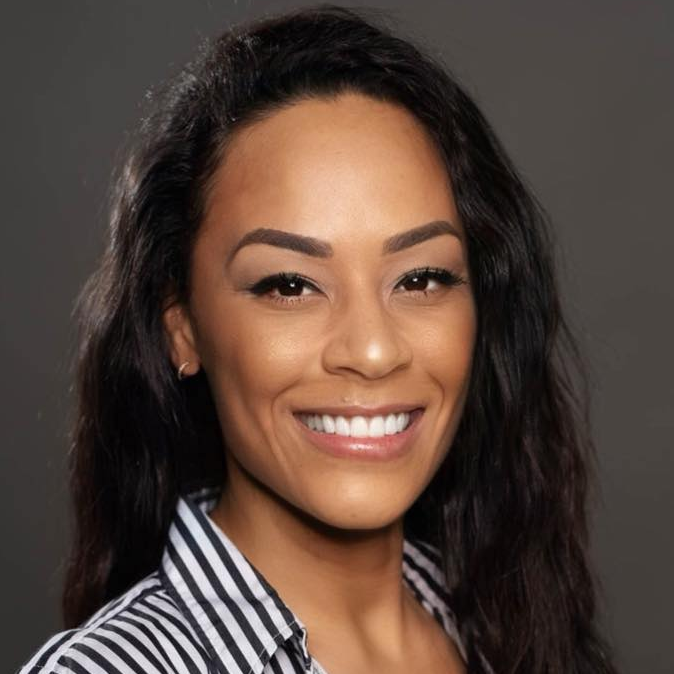
- Name: Brandi B.
- Diagnosis:
- Ewing Sarcoma
- Soft tissue, not bone
- Staging: 1B
- Age at DX: 24
- 1st Symptoms:
- Extreme fatigue
- Lump in pelvic area
- Treatment:
- Chemotherapy
- 17 cycles
- Each cycle = 5 days of infusion, 8 days break
- Surgery
- Chemotherapy
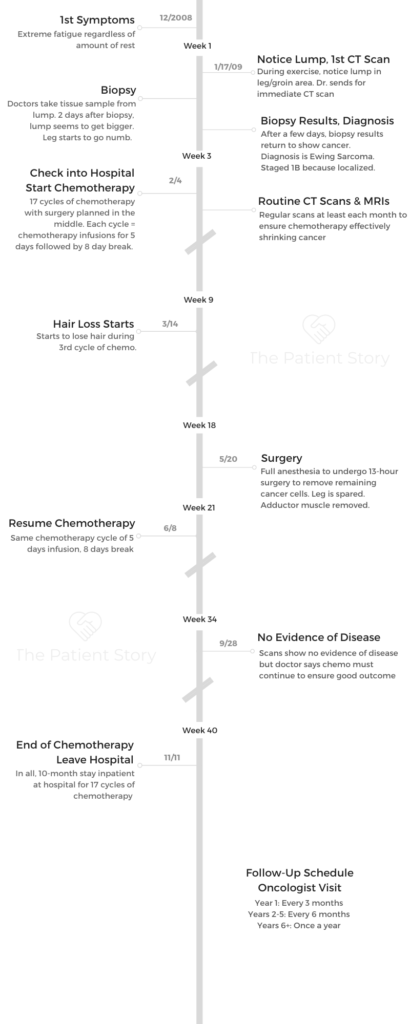
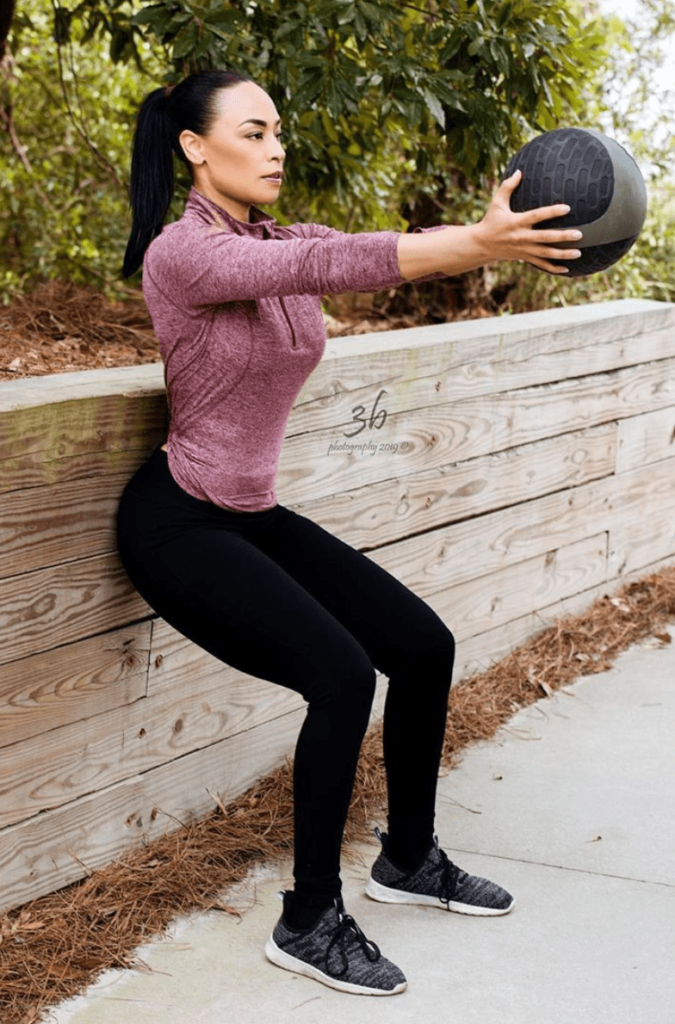
This interview has been edited for clarity. This is not medical advice. Please consult with your healthcare provider for treatment decisions.
Video: Brandi’s Ewing Sarcoma Story
The most beautiful people are the people who are so strong to me. People who’ve been and survived things.
And scars tell a beautiful story, so I think that’s strength and beautiful now. But before, that is not something I would say because I didn’t understand it.
Now there’s so much more value in seeing somebody go through something so traumatic and their body or that body part is able to live, to survive that. That’s amazing.
Brandi B.
Diagnosis
When did you know something was wrong
The year before diagnosis, in December, I had extreme fatigue. I was so tired no matter how much rest I got, or how much time off I was having, I could not get enough rest. I didn’t know that was one of the symptoms until later on in the process of finding out what type of cancer it was.
I was deployed in Iraq. I had been working out a whole bunch. There’s not a whole lot to do when you’re deployed. You’re on your missions. You eat, sleep, workout. I thought maybe I was so tired because I was working out so much, three times a day. I thought that’s why I was exhausted.
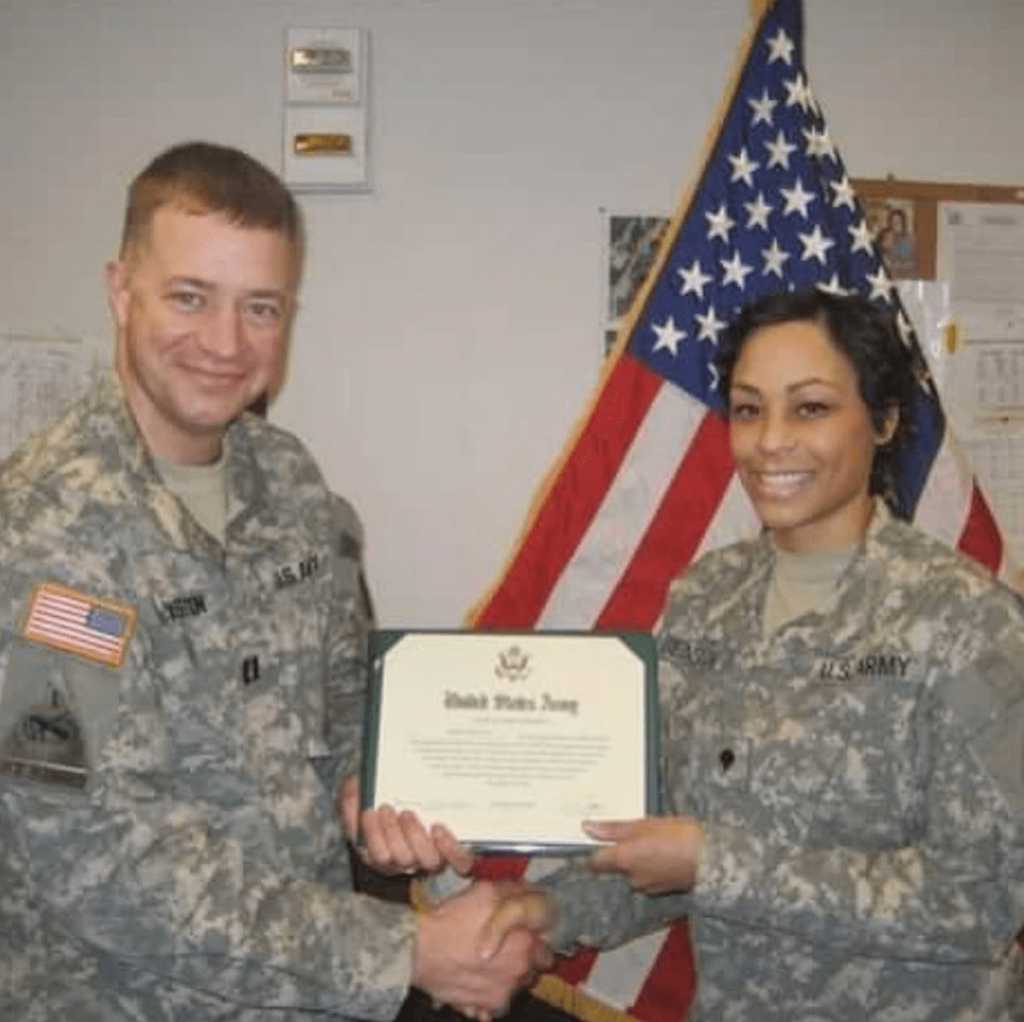
As time went on, I noticed that no matter how much rest I got I was still really tired. It was January, I was stretching because a couple weeks before that I was doing legs. I stretched and pulled my legs up, pulled my knee to my chest. I noticed a little lump, a little protrusion out of my leg.
I didn’t think anything of it because I was only 24. I was really young, really healthy, and cancer never crossed my mind so I kind of thought, I don’t know what I thought it was, but I definitely didn’t think it was cancer.
I was playing around with the idea, maybe something’s wrong. Maybe I’ll show a couple of people and see what they say. Hopefully, I’ll be put on quarters. When you’re deployed, quarters is you get days off.
So I was like if I get put on quarters I’ll get more rest, get more sleep, and I’ll feel better. My objective of showing these people was to get the right person to write me a note to go home and rest. That’s what ended up happening.
Describe the first doctor’s visit
They immediately thought something or knew something was wrong. But they didn’t diagnose me with anything.
They were just touching on [the lump], moving it around. Then she asked me if it hurt, how long it’s been there. I answered all the questions. That day, she’s like, “You have to get a CT scan and see what’s going on.”
Getting an MRI
Then they immediately sent me to Germany because I needed to get an MRI. Everybody was kind of “hush, hush” about it. Nobody wanted to say what it was. I didn’t know what it was. I was naive to the whole tumor thing.
I just thought I was on this little trip around the world to see what’s wrong with my leg, I really didn’t know what was going on.
When I got to Germany, they looked at it and said okay, it’s a tumor.
I was like, a tumor?
What is a tumor?
How did I get this?
What happens when you have a tumor?
What’s going to happen?
Again, I was really naive about stuff and the doctors were like okay, we’re going to get a biopsy of it and figure out what it is. I’m thinking, all right, they’re going to take some tissue out and I’ll have some days off to rest. I can shop around in Germany.
What happened after the biopsy
They take a biopsy of it and then maybe two days later, it started growing really big. Originally it started out the size of a medium-sized orange. It was in my groin area. You couldn’t see it at all until I moved my leg up or was really digging around in the cavity area in my leg.
My leg was going numb. I couldn’t put pressure on my leg so I was noticing things were changing in my body and I didn’t know why. I was only 24 so I didn’t have a lot of family members dying from cancer or even having cancer. The cancer that I did know about was breast cancer, colon cancer, lung cancer. There weren’t a lot of bone cancers or Ewing sarcoma cancer.
I just had no clue what it was. The entire time I was naive, didn’t know what was going on.
Results of your biopsy
After they do the biopsy, they tell me that they hope that it’s either a nerve sheath tumor versus a Ewing sarcoma tumor. I don’t know what either of these are so I went online and did a bunch of research and the Ewing sarcoma is the worst one.
They’re going to cut your leg off. If it doesn’t spread to the brain or spinal cord or the lungs, then you should be good. I was overwhelmed and really scared about what was going on. It turned out that I had Ewing sarcoma cancer. They diagnosed me with the wrong thing (nerve sheath tumor).
I think that’s also because with Ewing sarcoma, it’s usually Caucasian, little boys, and they’re 14 and younger. I didn’t meet any of the criteria for that so they just put it off as a nerve sheath tumor.
How did they stage it at 1B
It was in my groin area. It didn’t spread anywhere, it didn’t go anywhere. That’s why it was 1B. So when it doesn’t metastasize all over the place and stays in localized area, it’s staged 1 but I think it was B because it was so big. It was growing so large.
If I would have not gone to the doctor’s as quickly as I did, it probably would have metastasized into other areas. It just stayed right there in my leg.
How did you process the cancer diagnosis
I was just so clueless. I didn’t know what was going on. I was there for the ride.
I had no clue what was happening or what I was embarking on.
»MORE: Processing a cancer diagnosis

How did your loved ones react to the diagnosis
Everyone was really scared. I was worried I was going to die. My mother had quit her job and came to the hospital with my nephew who was three at the time.
My sister was also deployed in Iraq so my mom was taking care of her son. So my mom leaves her job in Texas, comes and lives with me at Walter Reed. She’s there and I’m able to talk to her and she’s my support system.
So they were more talking to her because I was on a lot of medication to keep me from – I was really scared, really nervous, really depressed. Everything I was reading was a lot of red flags. Everything said I was going to die and they were going to cut my leg off, so I was really distraught and not in a good state to communicate.
I was so numb and so ‘not there.’ I was present but my brain wasn’t there. I couldn’t grasp what was happening to me because it was happening so quickly.
They weren’t really talking to me per se. They were talking to my mother. When they would ask me to get my affairs in order, making sure my will was in place and that what I want on there is definitely that. Making sure the paperwork is right. What are the percentages I want to give to people if I do pass away? The things they were asking me was different.
With my mother they were saying it looks pretty bad, prognosis is really hard. It’s Ewing sarcoma cancer. If we can’t clean margins, we’re going to have to amputate her leg. It was at my hip so really high up in my hip area, they would have to take it up to there. She’ll never run again. Her leg is going to be extremely disfigured. We’re going to do the best we can.
My mom was really strong but behind my back she was crying and a mess. But I never saw her cry, I never saw her breakdown.
But after when we would talk about the stories, she would tell me about crying in the hall and the doctors would hold her and tell it was going to be okay.
»MORE: Breaking the news of a diagnosis to loved ones
Cancer also affects caregivers
It was just really hard on all of us. It doesn’t affect just one person, it affects all of us.
Everyone who has to watch your significant other go through this, it’s really hard but for me, during that quick little time of maybe a month, I was really scared and really depressed. I didn’t know what was going to happen.
But during that time, I was on a lot of medication. Ativan, Xanax to calm me down because I was so scared of what was going to happen. I didn’t have much of a choice.
One minute I’m healthy and fine, the next I’m being thrown into this life where I have no choice. I have to do this to live. I have to take these chemotherapies.
My whole trajectory of life has changed in a matter of weeks so I was so unprepared for everything that was happening to me. I just couldn’t grasp the concepts of what was really going on.
It was more so my mother who was really making calls and moves for me, getting information, because I was so distraught for a little while.
Chemotherapy
What was the overall treatment plan
I did [a few] months of treatment then took a break and did the surgery. Then I recovered for 3 weeks, then I did more chemotherapy.
How long were you at the hospital
I was inpatient so I didn’t check out, so I lived there for almost a year. Ward 71 was my new home.
Did you have a port or PICC line
I had a port in my arm. When I was going through this, I’m just hearing where I’m going to go, what’s going to be happening, but I’m not really grasping the terms of what they’re saying because I don’t know the terminology or medical jargon. I don’t know what’s going on, not walking around with a dictionary or medical book trying to look up these terms.
They say they’re going to put a port in my arm, I don’t know what that means or what that’s for. I just know that I’m going to some sort of surgery for something. So I go to the surgery and they put you under but I’m still awake, a little loopy.
I remember they take my arm, I go to sleep, wake up again and I see that there’s a needle sticking out. I’m like oh my gosh, what idiots, they just left a needle in my arm. I’m like oh my gosh, I’m in such bad hands.
But I didn’t know it was part of the process for a port. You put it in, you have to leave the needle open so it can get access.
»MORE: Read more PICC line experiences
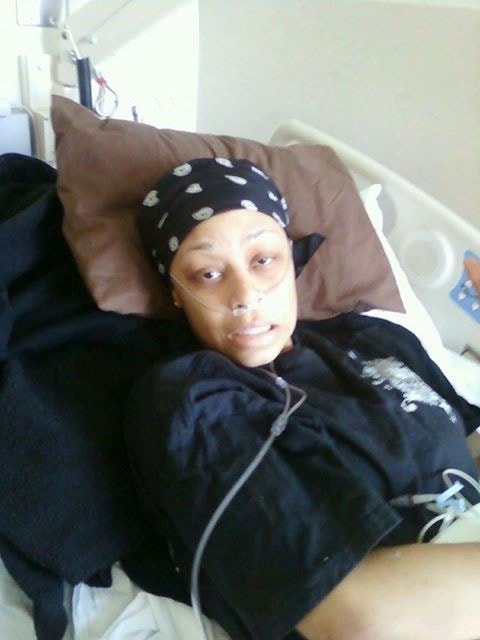
Describe the chemotherapy regimen
It was five days on, eight days off, five days on, eight days off. I continued this from February all the way to November 11.
Veteran’s Day is when I was able to stop. I was on six different chemos; I don’t remember all of them. I know doxorubicin, vincristine, etoposide. There were a lot of different chemotherapies that I had.
Describe those five days of chemotherapy infusion
I was on this ward and did my chemotherapy for the five days. Before I did the chemo, I’d do maybe three hours of hydration so they pump these huge bags inside of me.
It’s probably three huge IV bags inside of me. Then they’d give me the chemotherapy and then pump five more bags of IV inside of me.
They’d give me the chemotherapy, then shove it all out as quickly as possible because some of the side effects would be your bladder would bleed or be really bad on the heart.
Getting it through the system, flushing it out very fast was what they were trying to do. So I’d have to use the bathroom all the time. It was terrible.
But I felt really safe in the hospital. If anything terrible was going to happen, they would bring me back.
For the vincristine, that one’s a push, meaning it’s a shot. They give me hydration for however many bags and then they shoot it in. Then they give me hydration again. That one’s not an IV drip, it doesn’t have to go in slowly.
That was shorter so it was different with each treatment. It wasn’t all this one’s two hours, this one is two hours. This one might be an hour, this might be 15, this one might take three hours.
It’d be a cocktail so it would be etoposide with esphosphomite, vincristine, then doxorubicin. Just different.
Chemotherapy Side Effects
What are the chemo side effects
Summary: mouth sores, trouble swallowing, neuropathy in hands and feet, blue/grey nails, constipation, hair loss
I did about six or seven chemotherapies and the Lupron shot, and it was horrific. I would hallucinate. Sores in my mouth. You couldn’t swallow, I had bad issues with swallowing. I had neuropathy, numbing in my hands and my feet. Blue stripes, blue and grey-ish nails. When you urinate, it smells like chemicals.
I had constipation. Hair was falling out. My skin would burn all the time. I noticed I couldn’t wear or eat certain things, or use certain lotions. Deodorant would burn my armpits. Ketchup was really spicy. Chocolate was really spicy. I couldn’t sleep, I had really bad insomnia.
Also on one of the chemos one of the side effects was a really bad stutter. I stuttered really bad. Another one was I had a really bad memory so I couldn’t remember certain things.
»MORE: Cancer patients share their treatment side effects

What helps prevent or lessen the chemo side effects
They put me on Valtrex (valaciclovir) for the mouth sores. They also gave me a little pill to make your bowels move smoother. I was on a lot of magnesium because my bones would hurt really bad, they’d be very achy. I didn’t have really bad mouth sores and I think it’s the Valtrex they had me on, so I think that really, really helped me.
The worst was just the constant, dull, achy pain. It wasn’t sharp. Just a terrible headache throughout my bones. My back would hurt really badly. My bones would just ache so I’d be on Percocet.
There was another drug. They would give me that through an IV and I would sleep. I’d wake up in hot flashes, feel sick, but some of the stuff they gave me did help.
Describe the low blood counts and side effects
There was one incident where I had really low [blood cell] counts. It had never happened to me so I didn’t know what it was, what was going on. I remember being dizzy in the shower, and in the shower in the hospitals you have the emergency thing you can pull on.
I remember feeling really dizzy. My stomach started hurting. I felt like I was going to throw up. I pulled on the shower thing because I was falling back. I passed out.
I remember the water was hitting me and I blacked out. Then I remember them picking me up, I see all the nurses and some of the patients. They bring me over to the bed. They’re putting fluids in me and giving me a blood transfusion.
Then from then on, I know when I started feeling this loopy, terrible, dizzy feeling that I needed a blood transfusion. And I got those twice a month. I was so depleted, my energy was so low, I needed them all the time.
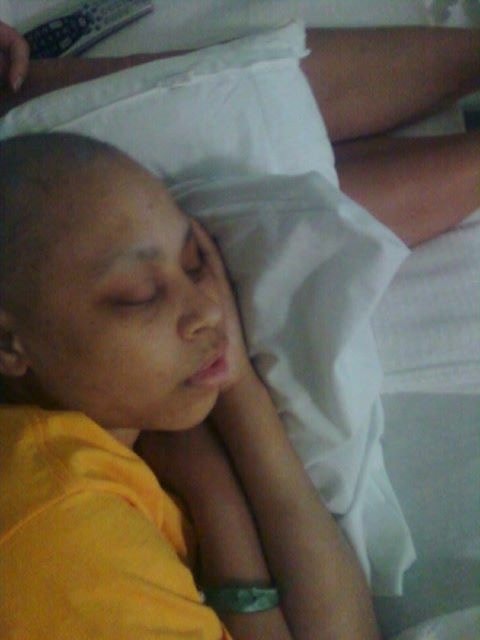
When do you lose hair from chemotherapy
It was around my third treatment. It was so crazy. My second treatment they told me the third one was going to make my hair fall out.
I remember calling my cousin and saying, ‘This next treatment, my hair’s going to be falling out.’ She’s like, ‘Well why don’t you cut it so it won’t be so heavy?’ I was like, ‘Oh, good idea! That’s a good idea.’
My hair was pretty long so we chopped it really short. That didn’t matter because the follicles die off and stop producing the hair. I would lay on a pillow and you’d hear a crunching. You can hear it.
It’d be clumps, chunks, and chunks are falling out everywhere. So it didn’t matter if the hair was shaved off, if it was cut really low. It didn’t matter because it was just falling out regardless.
And it was in patches so my hair would disappear. I’d go to sleep, wake up, wherever I was rubbing my head a lot, there’d be a bald spot. If I moved my hair, it would just crunch out like if you take a dry leaf and you crunch it. So it would just fall out. It would just break off.
Did you shave your head completely?
I didn’t. I remember my cousin would think I was so crazy. I just didn;’t care. I remember they had this little ‘schwoop’ of baby hair.
It literally looked like baby hair at the top of my head. It just stayed, this little tiny bit of baby hair. I did a massive cut but that’s all we did.
I don’t know what it was. I was just so scared of not being able to control something. That was something that I could control. I can shave my head or I don’t have to.
So that maybe gave me a sense of control. This is the small part that I can control with my life right now because everything else was out of my control. I didn’t have a say about anything.
It gave me a sense of stability and control. I still had a little bit of control over my life. So they kind of made fun of me for not shaving off that little bit of baby hair but it made me feel fine.
Describe the Lupron shot (to preserve female fertility)
One of the chemos was really bad or really hard on the eggs in the body. They gave me the option to either be put on this thing called a Lupron shot or not.
The shot was supposed to preserve my eggs so instead of having a 17% chance of having children in the future, I’d have a 27% chance or something like that.
I was like, ‘Okay, mom, doesn’t sound like it’s in my cards. I don’t think I’m going to have it. I don’t think I’m going to take the shot.’
She was like, ‘No, Brandi. You want to make sure. Maybe in the future you change your mind. Let’s try this.”
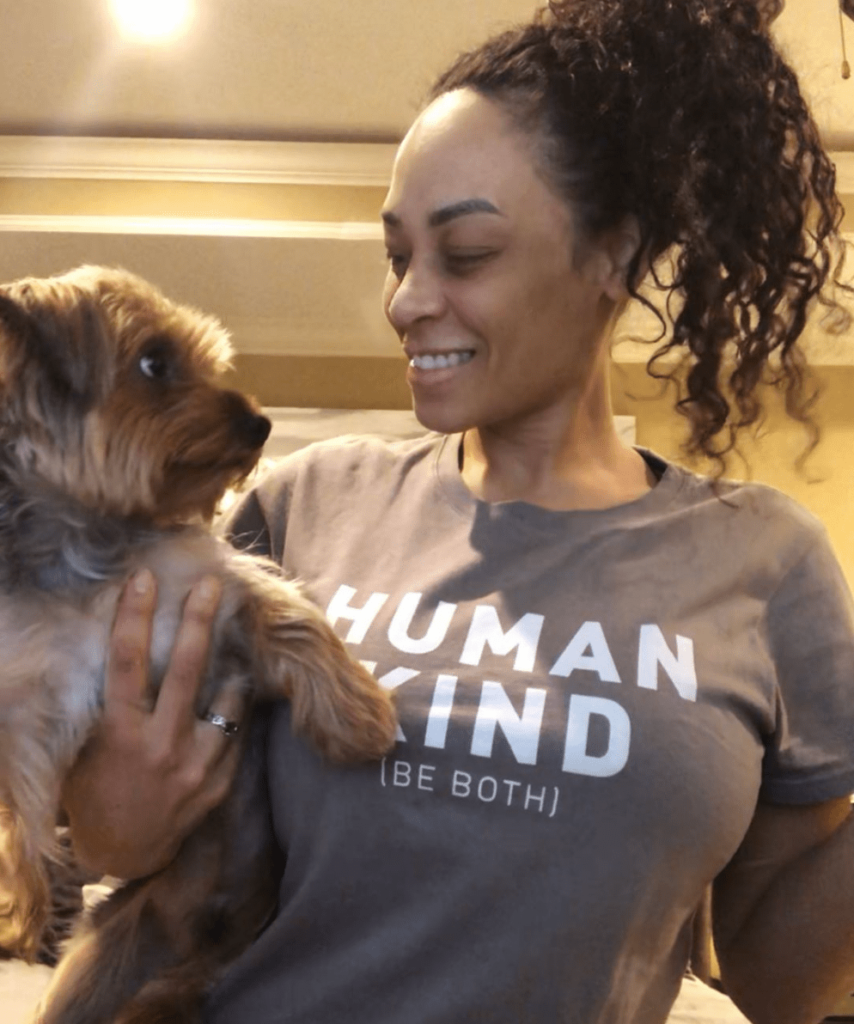
Side effects of the Lupron shot
Lupron shot throws you into menopause really fast. So I’m having hot flashes. I have really bad mood swings.
I’m experiencing all these menopausal symptoms as well as chemotherapy. It was just hell. It was terrible.
I remember at first I was really embarrassed about having no hair, no eyebrows, so I tried to draw some on and wear a wig. But the hot flashes were so aggressive.
They’d come every 15 minutes and would have to take the wig off. I’d walk and wherever I’m at, would have to take the wig off.
So I was like screw it. I don’t care anymore. I don’t care what I look like anymore. I’m fighting for my life. This is what it is.
Surgery and Recovery
What kind of scans do you undergo before the surgery
I had MRIs and CT scans. I had to get those done periodically throughout the treatment. Maybe once a month to make sure it wasn’t spreading all over the place before the surgery.
They also take measurements to make sure that the chemotherapy was shrinking it and that it was working, that there was an adverse effect (on the cancer). So it was responding, it worked, it was shrinking down and then they did a huge surgery.
What was the surgery plan
They removed my entire adductor muscle. That’s the inner muscle in your legs. So I have no adductor muscle, it’s gone. And you can’t grow that back, it doesn’t come back.
I tried to get a cadaver muscle but they said it’s so dangerous they’d have to suppress my immune system so low that any common cold or something would get me sick, I could die, or my leg would reject it and they’d have to amputate my leg.
They were like, “Just be happy you have a leg.”
So, I’m happy I have a leg.
Describe the surgery
My surgery was 13 hours. When I go in there, Dr. Potter, I explain to him I really want to keep my leg. ‘If you could please spare my leg.’ He’s like, ‘We’re going to do the best we can. We’re going to try to do a limb-sparing surgery and get all the margins as best as possible.’
I remember I was going in and really scared because he couldn’t promise me that they were going to amputate my leg or not. I remember begging him, I’d really, really like if you could get as much as you can but please let me have my leg.
So when I woke up out of my 13-hour surgery, I remember I was really shaky, I couldn’t talk much, I was really cold, maybe because of all the anesthesia.
When I was coming out of it, I was stuttering a lot, I was really shaky from the chemo side effects. I remember waking up and it was 13 hours later so it was nighttime by the time I got up, my family was there.
I remember laying here and touching my leg to see if my leg was there and I couldn’t feel anything. I was like oh my god, they took my leg off. I’m trying to wiggle my feet around and try to see but my leg is numb so I can’t feel anything.
Then I look down and I see my leg. I’m like, ‘Whew! Thank goodness!’
They had this thing called a blocker on it. It’s an epidural – there’s certain nerves they can block off so they blocked this whole region of my left leg down. That’s why I couldn’t feel anything.
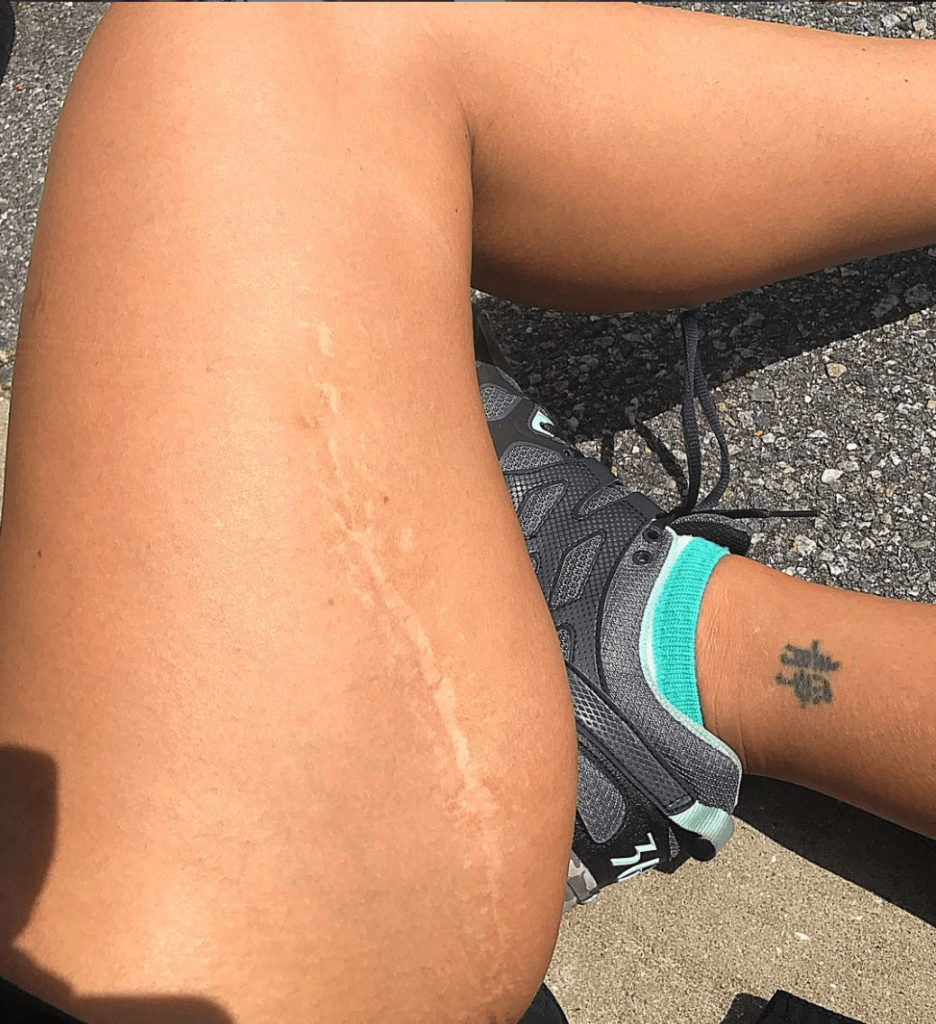
The recovery from surgery
After the surgery, I had to learn how to walk again because my adductor muscle was missing. So a normal person when you’re walking, you can walk normally. The adductor muscle keeps the leg in place. When you don’t have one, the leg goes out and (repeatedly) it goes out.
So I didn’t know how to keep it in at first. I took a long time to learn how to walk and not make it go out, bring it back in. I had to strengthen the muscles out. I still can’t really sprint or run very well.
I had to learn how to walk. I look significantly different. I have one regular leg and one really small, skinny leg. I could see, it’s a little bit graphic, but I could see my butt cheek from the front.
Describe the physical therapy
I did that the entire rest of the time. I had my surgery in May and then from May to November I was doing physical therapy.
I was moving my leg out, moving it in, on a bike, I was going up the stairs, coming down the stairs, walking with a walker with tennis balls on the end, getting up and down, just trying to strengthen my leg and knee up. So I did that forever. I still do physical therapy because it’s really weak.
How is it learning how to be in your “new body”
I don’t know. There came a time where I realized this life that I was fighting for was the Old Brandi. That person was already gone, already dead.
This new version of myself has been resurrected. This is the person that’s surviving. So I had to come to terms with saying good-bye to the old version of myself that I was once fighting for or trying to preserve. That life is just gone.
When I finally figured that out, I was able to accept what was happening and accept that my leg is not going to be the same. I’m not going to play sports anymore. Competitively on a national, high level or impact sports like basketball, soccer.

Things are going to be different. I just had to accept that and learn new things. I had to reinvent myself. I had to figure out what does this new person like to do? What can I do? What are my limits? Because this fearless person that used to be me is gone because I had this totally different body and it operates differently.
I respond differently to different things. I had to figure out who I was, what am I good at now? What do I like to do? What do I enjoy?
I just had to have a nice little sit down with myself to figure out who am I now because who I thought I was, it’s not the same person anymore. But learning how to accept it was so hard. I cried for so long. I was like I’m ugly, I don’t look the same anymore.
Maybe two or three years ago I was just like the most beautiful people are the people who are so strong to me. People who’ve been and survived things. And scars tell a beautiful story, so I think that’s strength and beautiful now.
But before, that is not something I would say because I didn’t understand it. Now there’s so much more value in seeing somebody go through something so traumatic and their body or that body part is able to live, to survive that. That’s amazing.
How long was your surgery “break” from chemo
My surgery break was in May, four months into chemotherapy. Took a little break. They gave me a two-week break and we tried to do another chemotherapy set but my stitches wouldn’t heal up. I had a massive hole in my leg that would not close up. I had a huge hole in my leg, you could see the bone in my leg. It was really long, too.
I remember we used to have to stuff it with this yellow-green string stuff really far down to pack it. I had a wound-pack person. They would come in, pack the wound in my leg.
Because the chemotherapy would suppress my immune system so low, I wasn’t able to heal up really fast. So it took a bit longer for me to be able to get back on the chemotherapy because the hole was so big and they were scared that I’d get an infection. Then it’d spread somewhere.
Finishing Treatment
Describe the chemotherapy you started after surgery
Same regimen, same five days, eight days off. Same chemotherapy, same doctor, same hydration (post- and pre-infusion).
When do you learn you have no evidence of disease (NED)
I’d keep getting the CT scans and MRIs done every month. They finally came back and on September 28, my mom and I were sitting down, they said, ‘We have really good news.’
I was numb to everything. They said, ‘She’s cancer free now.’ I remember thinking, ‘Mmkay, all right.’ My mom is just bawling and crying. My nephew’s in the room and she’s so happy.
I’m just like I don’t even know what’s going on, so not even there. I was happy, of course, I think to hear about it. To think about it now it was just somebody different going through all of this stuff. But it was me. Just so much stuff going on. Things I couldn’t comprehend.
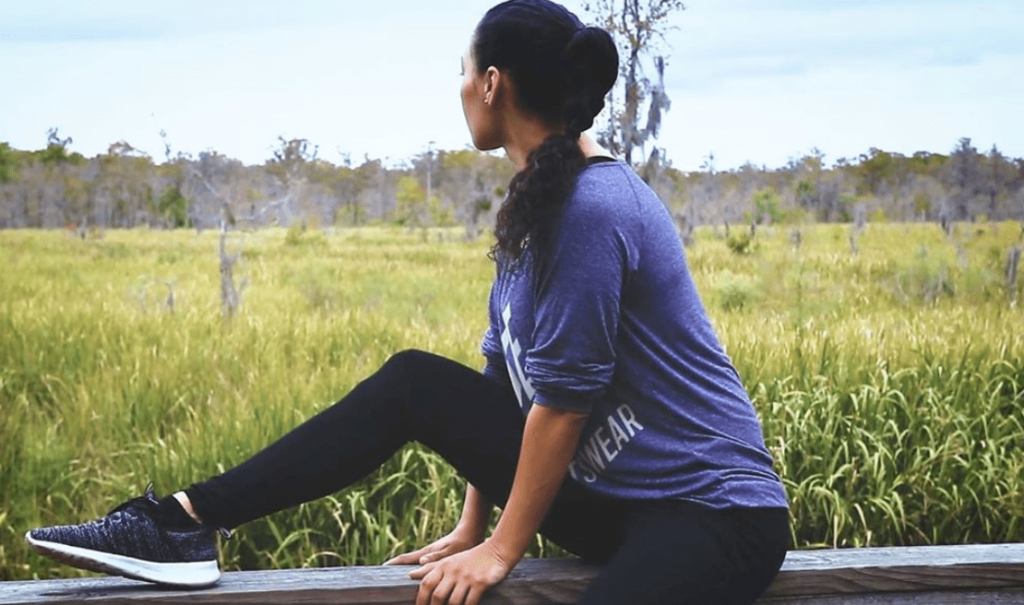
Your energy levels towards the end of chemotherapy
If they had allowed me to not do [chemotherapy anymore], I probably wouldn’t have done it because it was just so hard on my body. I was so sick. So weak. I had to be pushed in a wheelchair everywhere I went, I couldn’t stand up, and I could barely move.
I’m a very active person so what might take me 15 minutes to clean my room took me two hours. I could barely move. I’d run out of air really fast. I couldn’t breathe.
I was really fatigued and tired. I was so weak, I had no energy. I remember when I was supposed to sign out of the hospital, I couldn’t sign out because I couldn’t even hold the pen in my hand.
My handwriting you couldn’t read it. My mother had to sign out for me. I couldn’t even do it. Couldn’t even hold the pen, I was just so weak and so over it.
The medical staff and volunteers became friends
They really saved me. I had the best care you couldn’t ever ask for. If I needed any medication. If I needed warm blankets, if I needed somebody to talk to.
I ended up making friends with all the nurses so they would come in, talk to me, check on me. I made friends with the janitor lady who’s cleaning up stuff, the Red Cross people that would come by.
I would have so many people coming in and checking on me because I was inpatient for nearly the entire time all 10 months.
Follow-up protocol
I’d go in every three months for a year, then every six months for a year. Then after everything’s clear, after I get to my five year-mark, I’d go once a year.
I made it to my five-year mark and now it’s once a year. Every single year I go into an oncologist, we do a CT scan or an MRI if it’s called for.
Sometimes I’ll ask for it, just to make sure, peace of mind for myself. They just push on you, make sure my counts are where they’re supposed to be at.
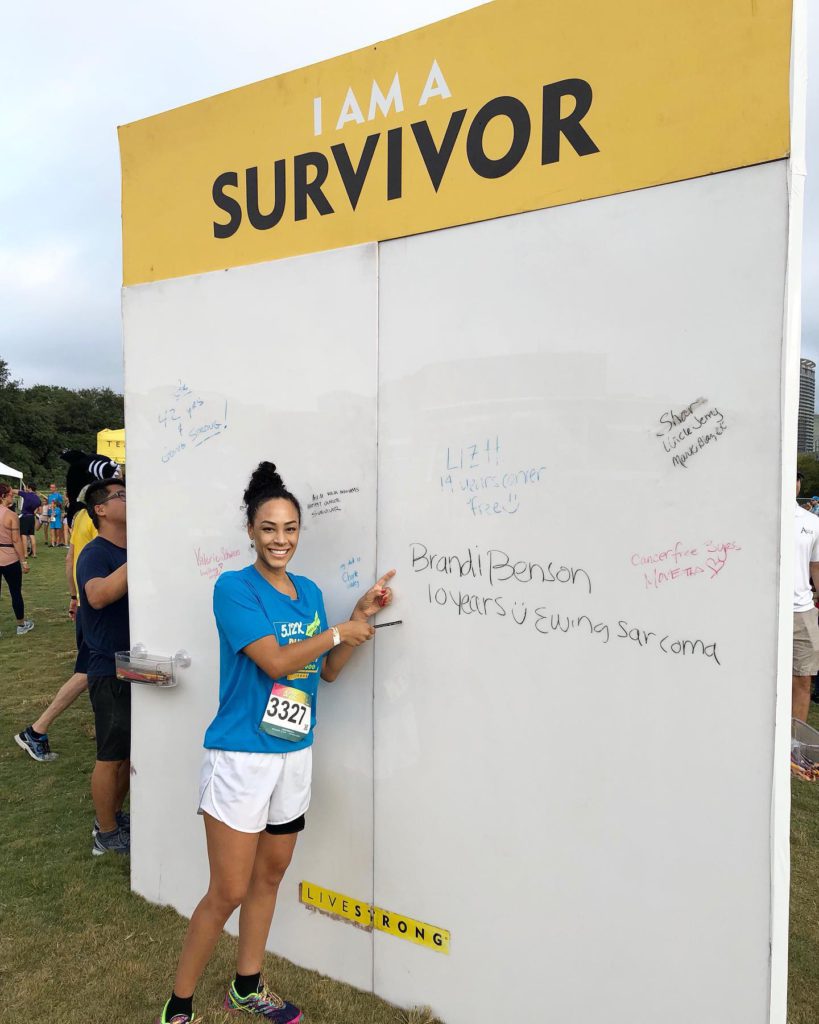
Survivorship
Describe life after cancer
I have PTSD. I didn’t even know you could get PTSD from cancer or anything like that. But I definitely have PTSD from having that and going through that experience, watching all of my friends.
The majority of people on that (hospital) ward had all been deployed somewhere. They came from some base from somewhere and all came back to Walter Reed. Every single person that was on there died. I was the only one that lived. That used to drive me crazy.
Now I get a lot of people who reach out to me and say, ‘Hey, I saw your story and I have Ewing sarcoma, too. Can you please tell me what to expect.’
I give them all the information I can give them and we’ll be chatting, talking for awhile, continuously. Then it will stop and I’ll know something happened. Or sometimes they do make it and that makes me really happy.
We’ve created a nice little circle of friendship since we all share the same kind of cancer. I didn’t think you could get PTSD from surviving a traumatic event. I really thought it was just war or something.
How do you handle the mental stress
I know that hard times are not going to last forever. There’s going to be sunshine at the end of the rainbow somewhere. I feel like it is hard to make friends with these people or other individuals and them not make it.
I wonder why or how, or what did I do differently?
What could I have told them?
What did they do differently?
How come they didn’t make it?
I’m always wondering how and why. I’ll never understand. I used to say I had the will to live, to not give up. But I don’t think anybody gives up, I don’t think anybody willingly wants to go through treatment and all that, then give up.
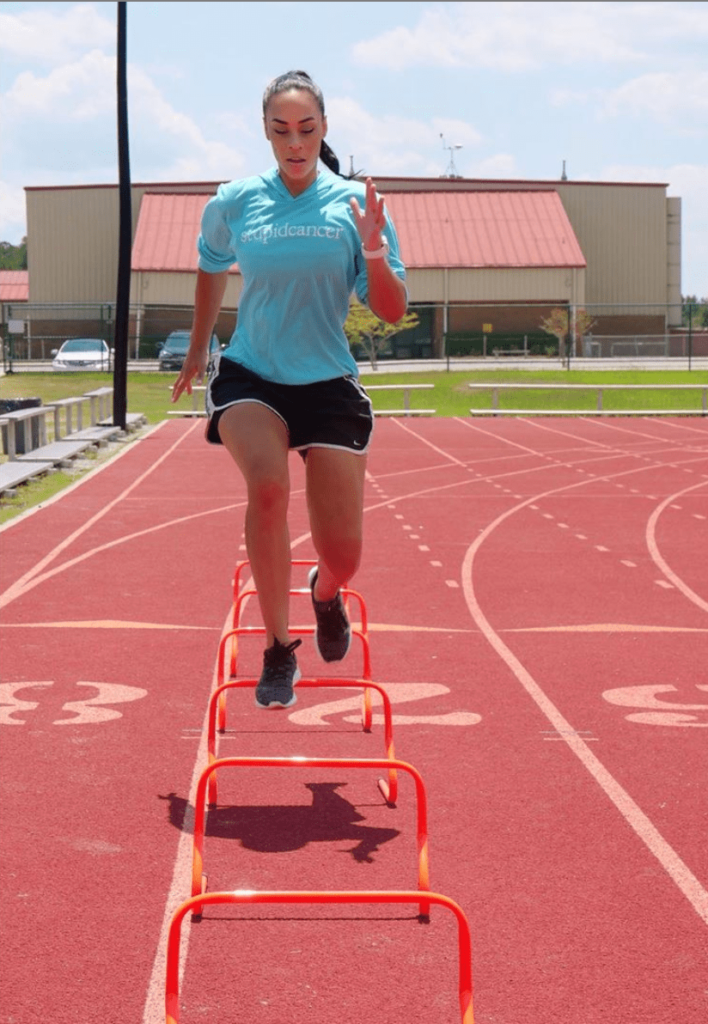
How do you handle being a patient in the hospital for such a long time
I felt really comfortable being in the hospital because if anything went wrong, if something goes wrong at home, you call 911 to get to the hospital. But that eliminated that medium there so I am at the hospital. I felt really, really safe there. I felt at home. I felt like they had my best interests and I made really great friends with them. Some of the nurses and doctors, we’re still really good friends on Facebook and Instagram.
I would just tell people who are going through this that it’s very important that they have a strong set of people around them. They need a strong environment because you can’t be the only person rooting for yourself.
You need somebody, a psychiatrist to talk to for your mental state, a physical therapist to help you physically, your family, your friends, or significant other. You can have an animal.
Just being able to talk to other people about your feelings and what’s going on. And specialists like doctors. But having a strong support system is so important. You really, really, really need that. So I would definitely urge that.
»MORE: Mental and emotional support when leaving the hospital
Guidance: be your own self-advocate
Listen to their doctors and to also be their own advocate. Also, seek out other options and treatments. I have a really good friend who has been through cancer so many times. She lives every single time, hopefully this will be the last time she has it.
She is a big cancer advocate for herself so she’ll research the cancer, the treatments, the chemotherapies. She is able to pinpoint which treatments may work better for her specific type.
I would say read, do research, be your own advocate.
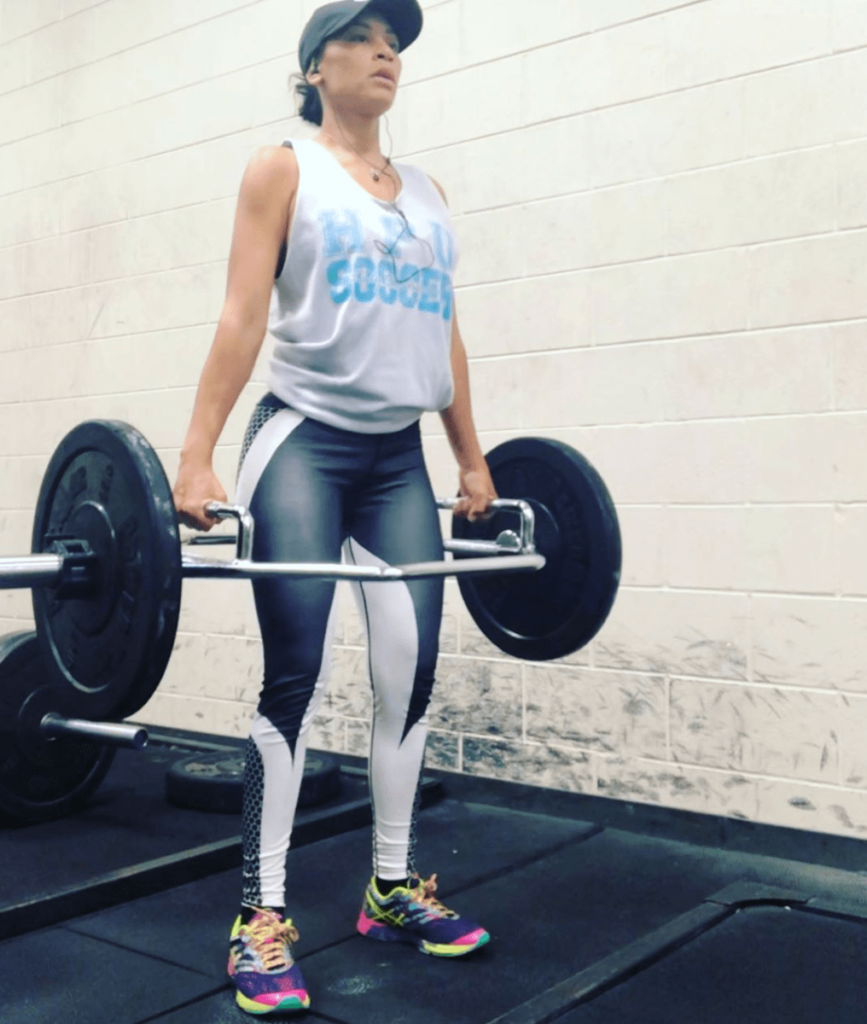
Also, incorporate a healthy meal, healthy diet, exercising and lower your stress so you don’t have to be put into these situations because cancers are diseases. It does come from not only our physiological body parts but other sources. Your stress levels, what you’re eating, what you’re not eating.
If you’re able to make a nice homeostasis, beautiful environment in your body and you have a strong immune system, you can fight off these diseases so they don’t set up shop and build up in your system. So take care of your health.
Health is wealth. If you’re not healthy, you don’t have any kind of life. You can be the richest person in the world but if you don’t have health it doesn’t matter. You can’t enjoy the riches. You’re going to constantly be in pain or seek something to take the edge off.
So just being healthy, aware, and listening to your body is so important.
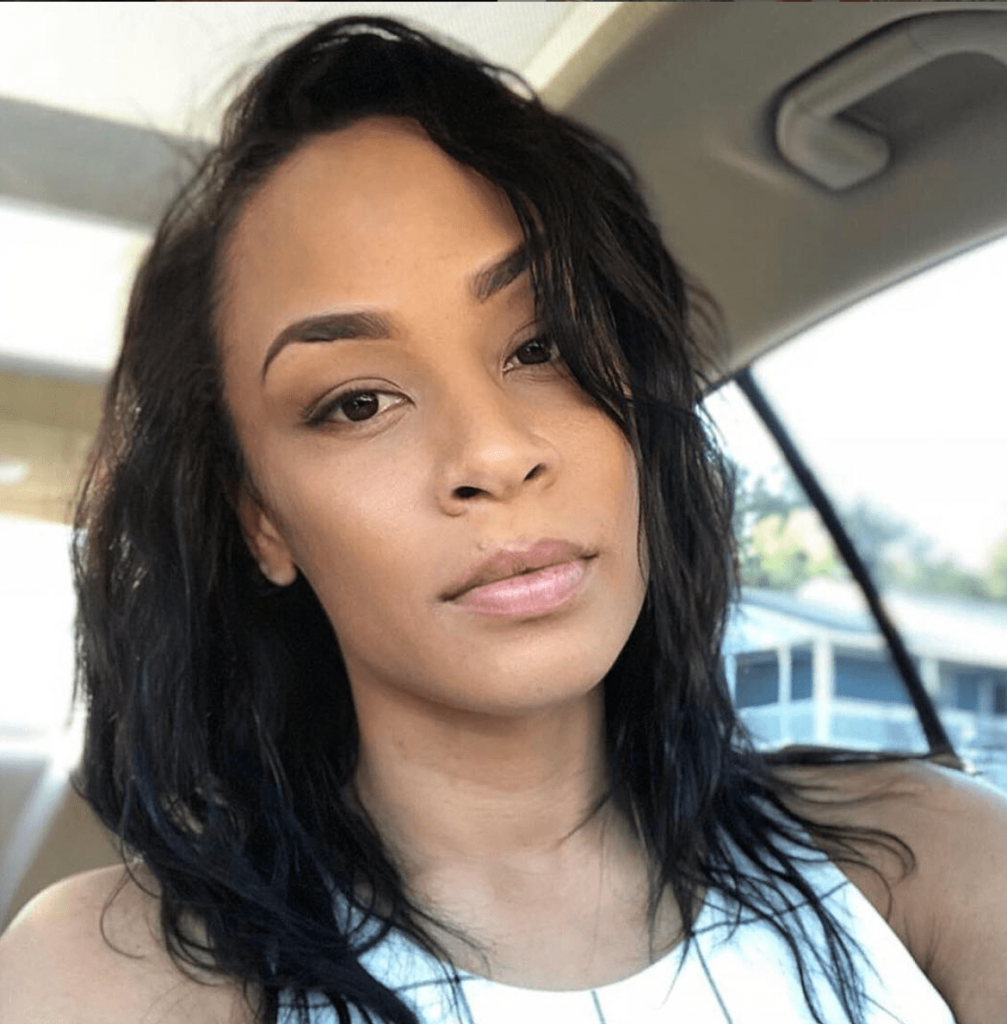
Inspired by Brandi's story?
Share your story, too!
Ewing Sarcoma Stories
Ariane B., Ewing Sarcoma (Bone)
Cancer details: Most common in kids, young adults (teens through mid-20s)
1st Symptoms: Aching in arm, lump in forearm
Treatment: Chemo (14 rounds), surgery (of radius), radiation (36 sessions)
...
Brandi B.,
Ewing Sarcoma,
Stage 1B (Soft Tissue)
Cancer Details: Adult case of soft tissue Ewing sarcoma, not bone sarcoma
1st Symptoms: Extreme fatigue, lump in pelvic area
Treatment: 17 cycles of chemotherapy in-patient at hospital with (leg-sparing) surgery in between
...
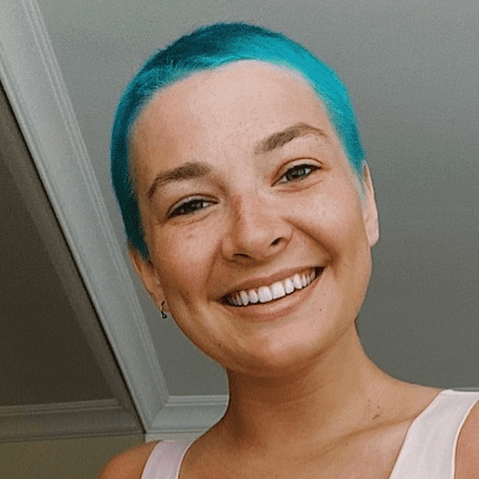
3 replies on “Brandi’s Stage 1B Ewing Sarcoma Story”
Thanks for sharing your story and praise God you overcame and made it through to healing! I have some lumps in my upper thighs, and one on my forearm and a new one on the other forearm. I had some of the thigh lumps checked out in my early twenties and was told nothing to worry about, but I am double checking them later this week just to be sure nothing has changed. None of us ever expect to encounter such a major health issue, but I know it’s completely possible. I am praying everything checks out ok, but I also know it could go either way. Your story is encouraging on how to overcome the long road should any of us need that. Thanks again!
Thank you for sharing your experience. My niece has been diagnose last November 2022 of the Ewing Sarcoma at the age of 20 y old.
I don’t know at which stage she was. She has been given the full chemotherapy protocol. The battle against this terrible cancer is going on. It is heart breaking but we are all behind her pushing for the best in the future. Thank you for telling your story… it will help and give hope. Wish you the best in your life! So glad you are over it.
Thank you for your story, I have been diagnosed with a very rare form of Ewing sarcoma, it was in my right submandibular salivary gland, had neck dissection and 47 lymph nodes removed including the salivary gland, now I’m getting 30 rounds of radiation to my neck and jaw area, then the tumor board wants me to get inpatient chemo therapy too after I’m done with radiation, my problem is I have stage 3 kidney disease that has been stable for the past 20 years but I’m afraid CHEMO will send me into kidney failure so it’s just a hard decision coming up to make.